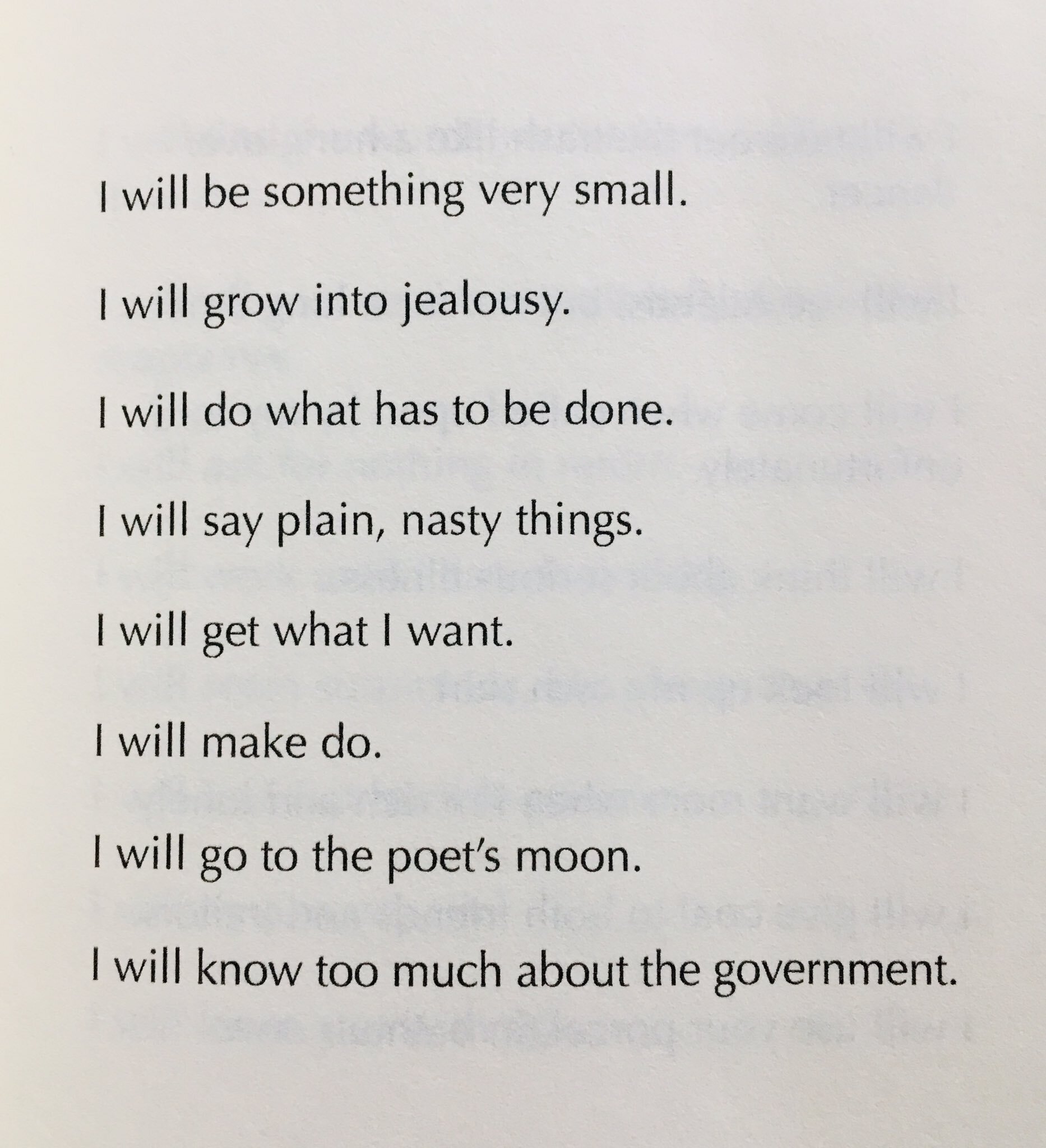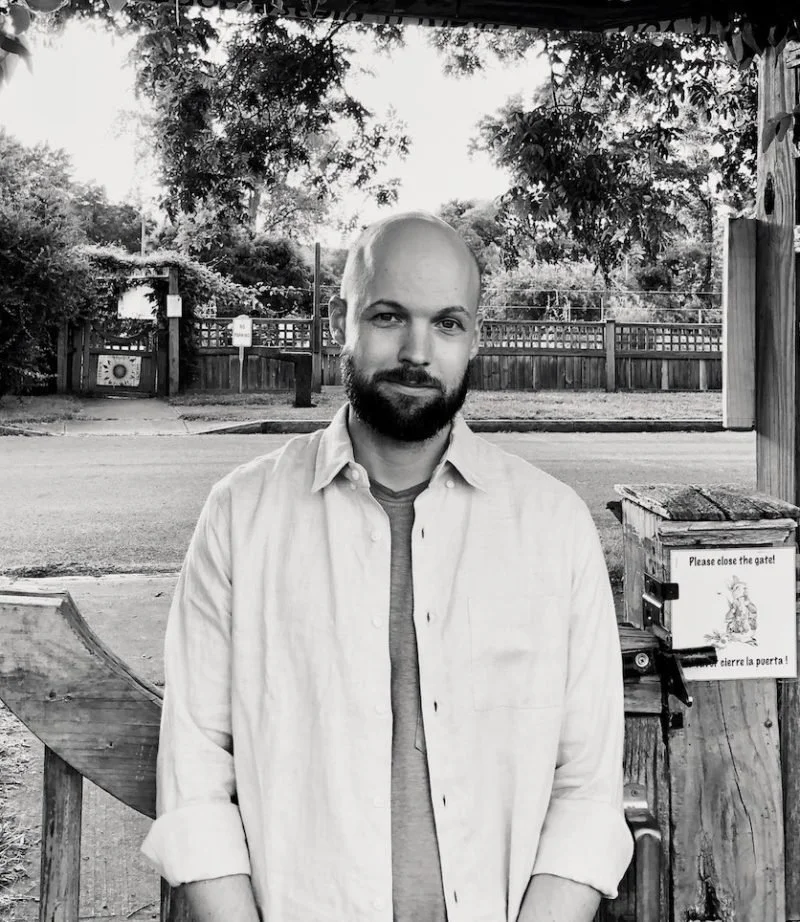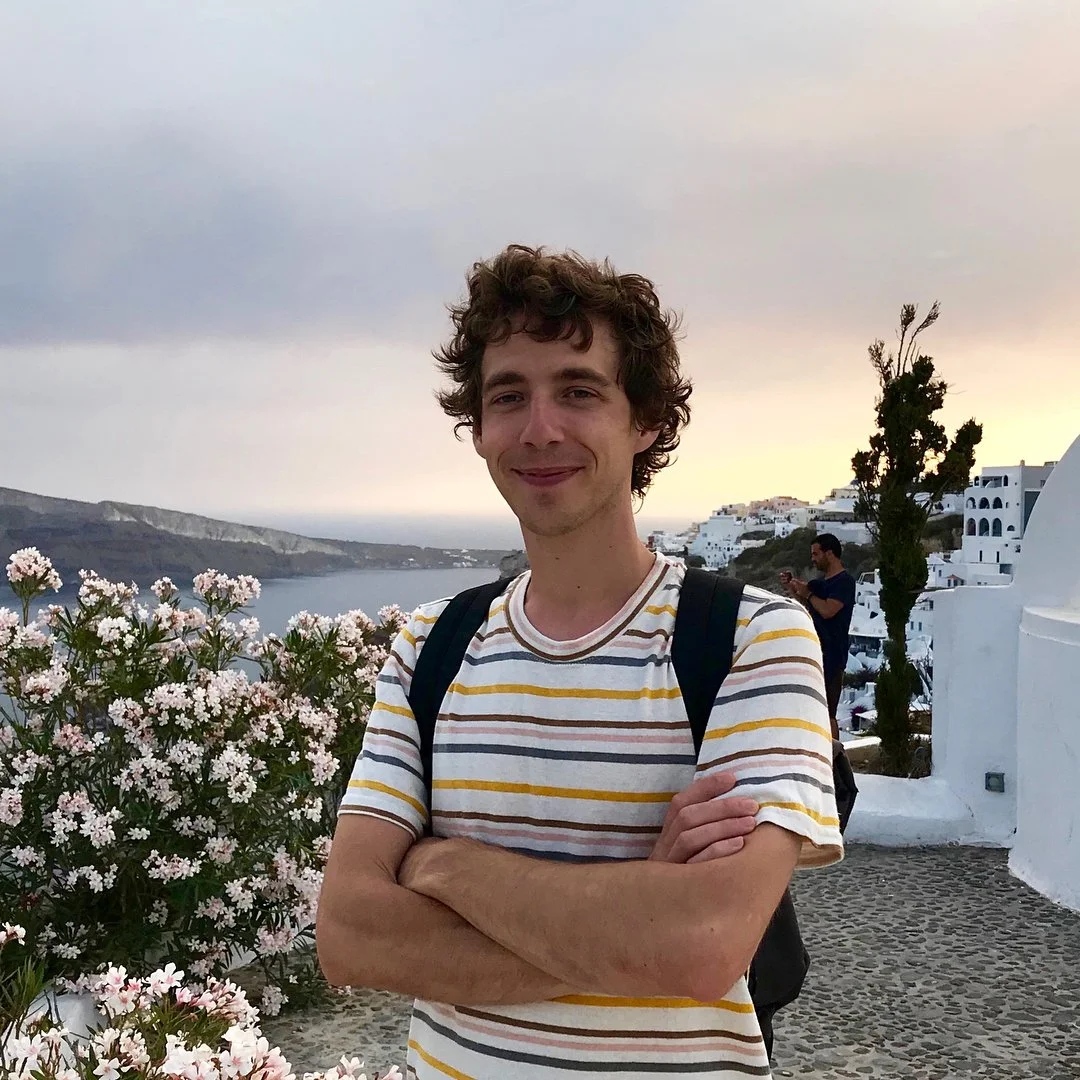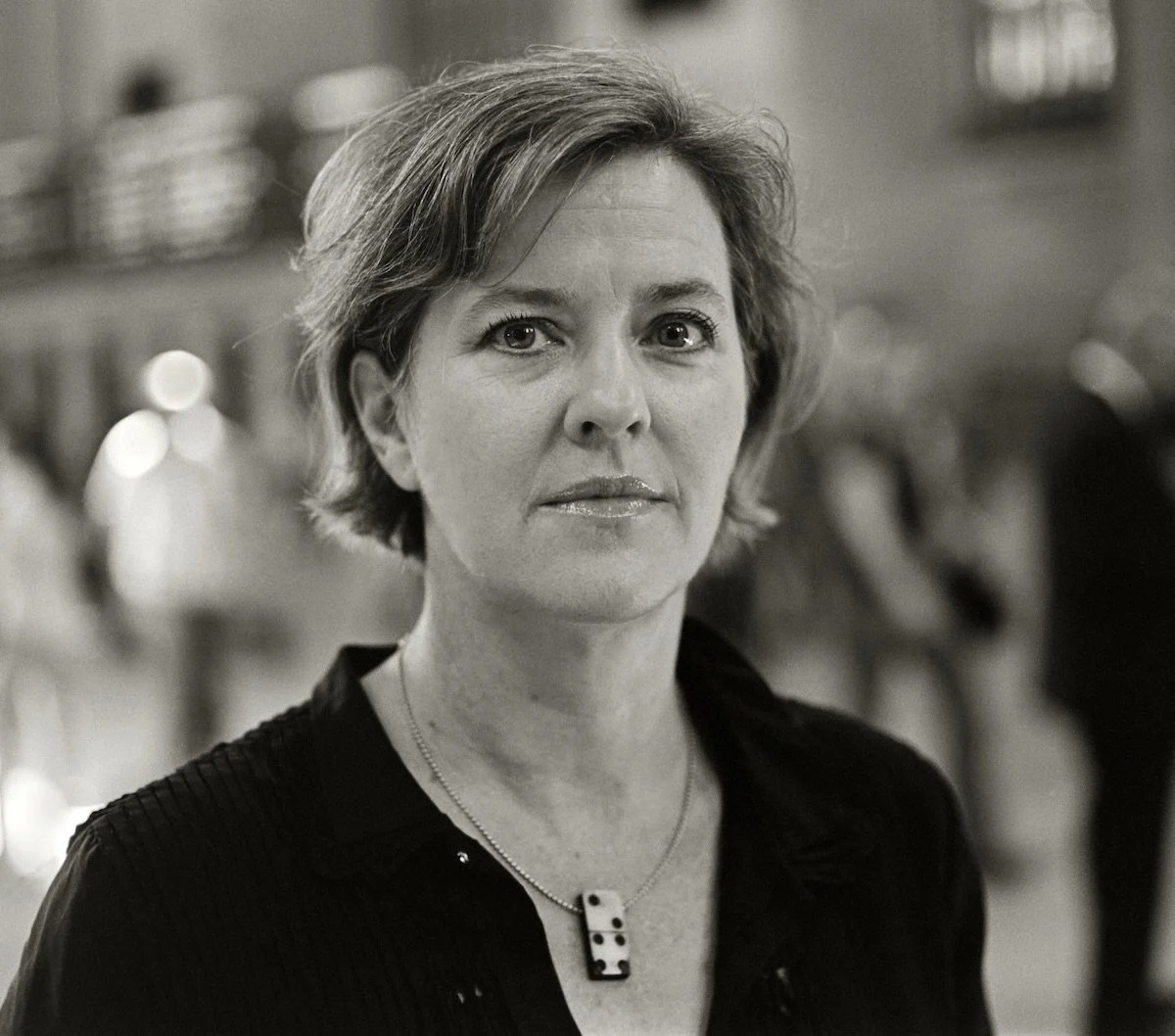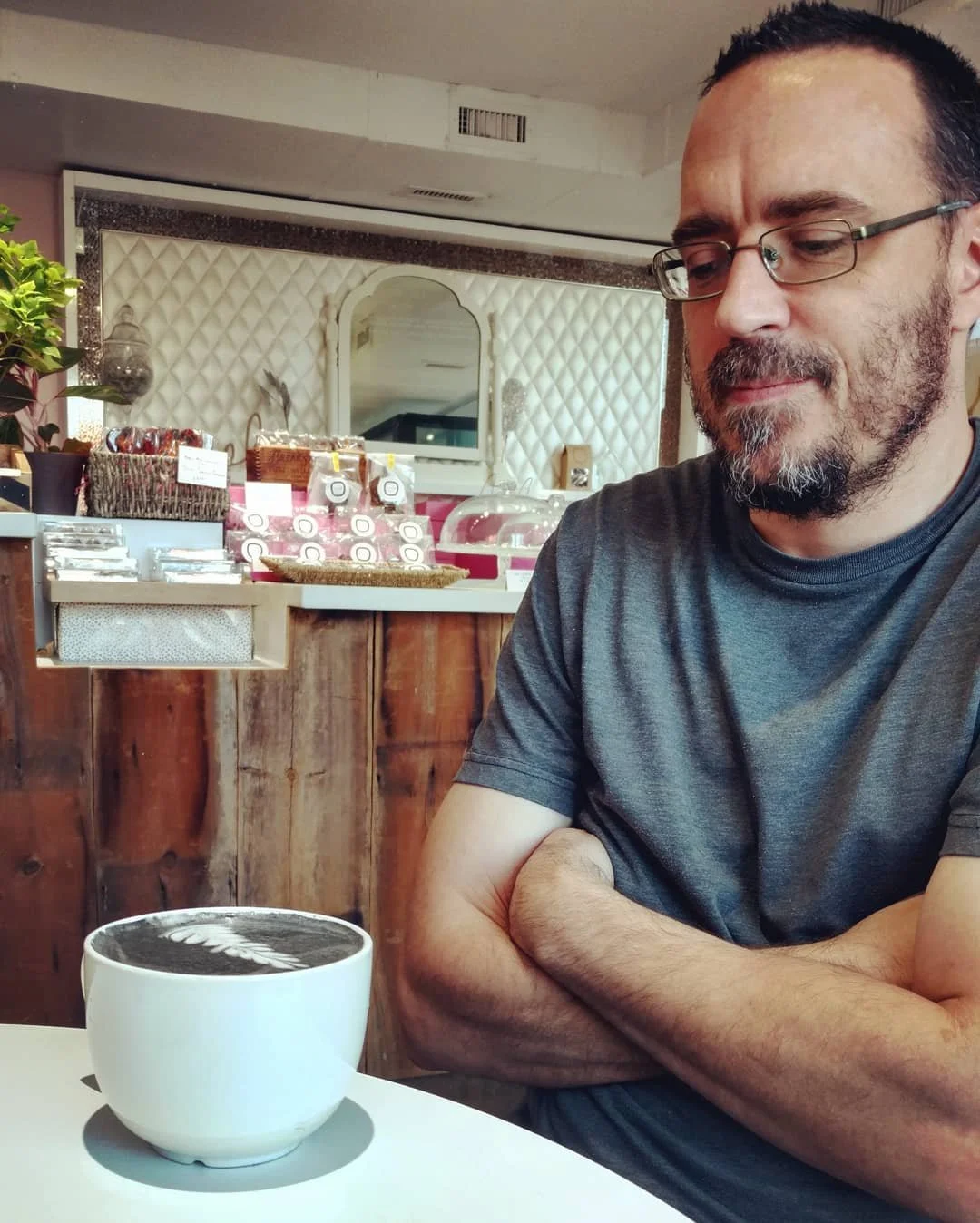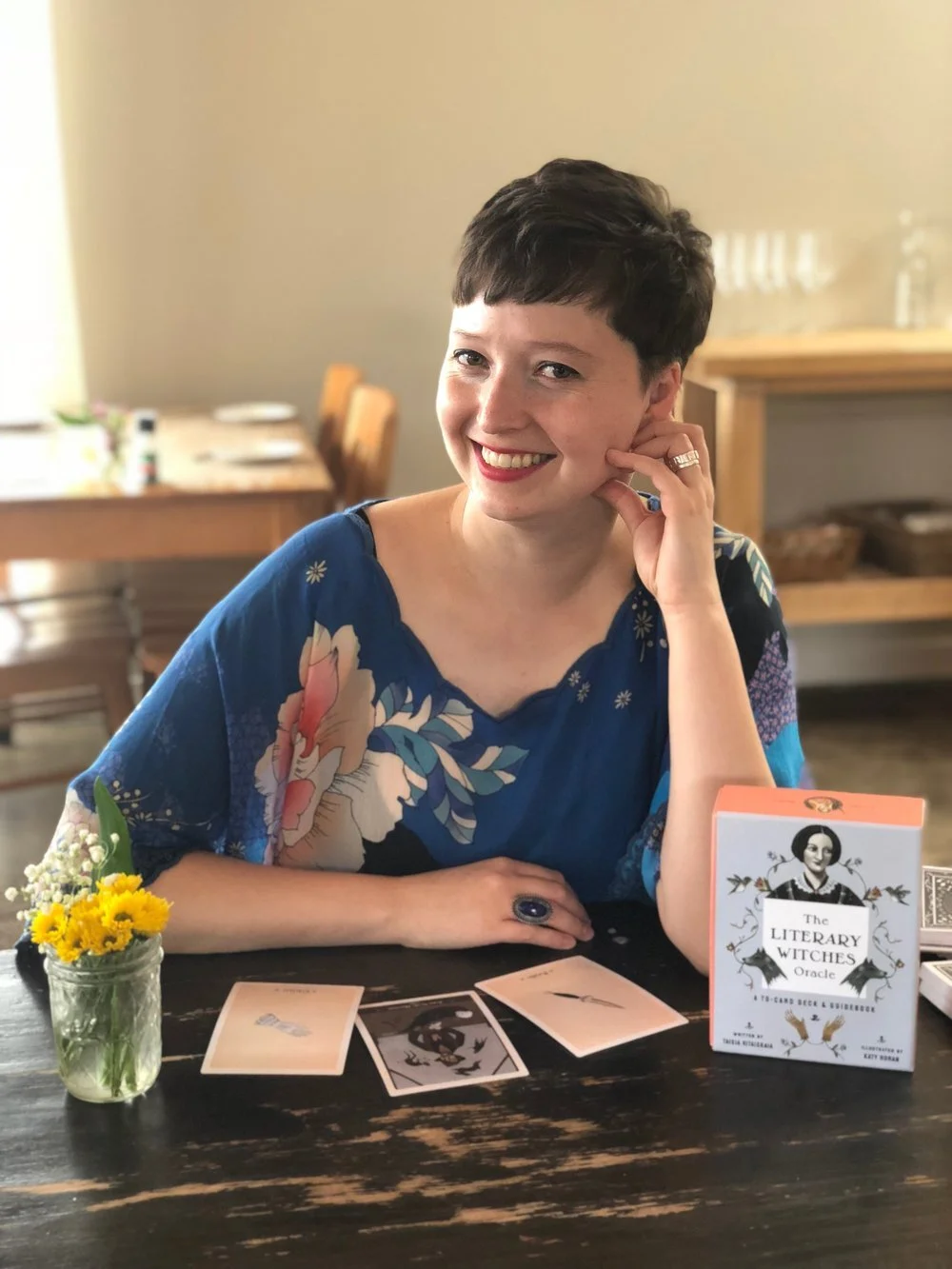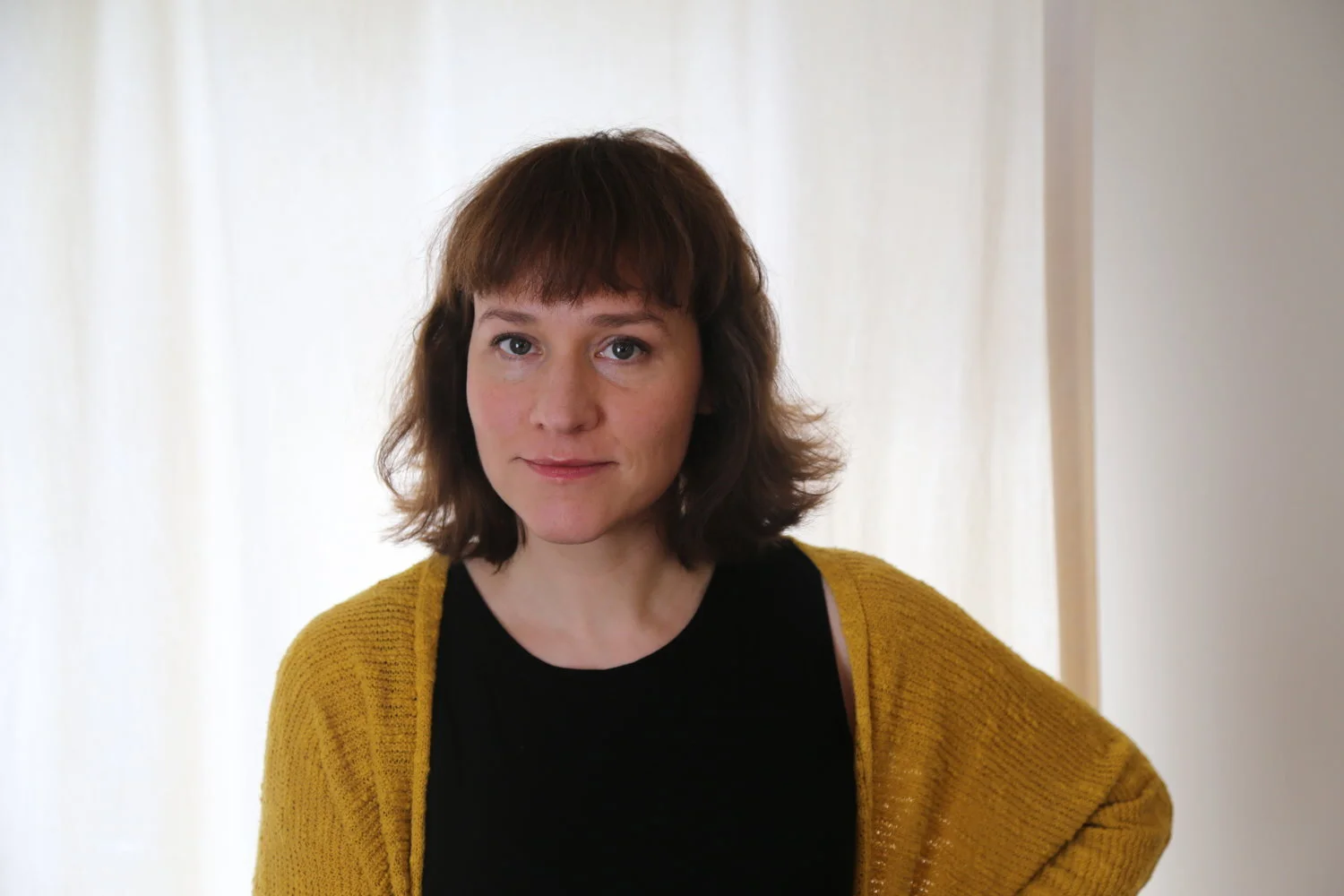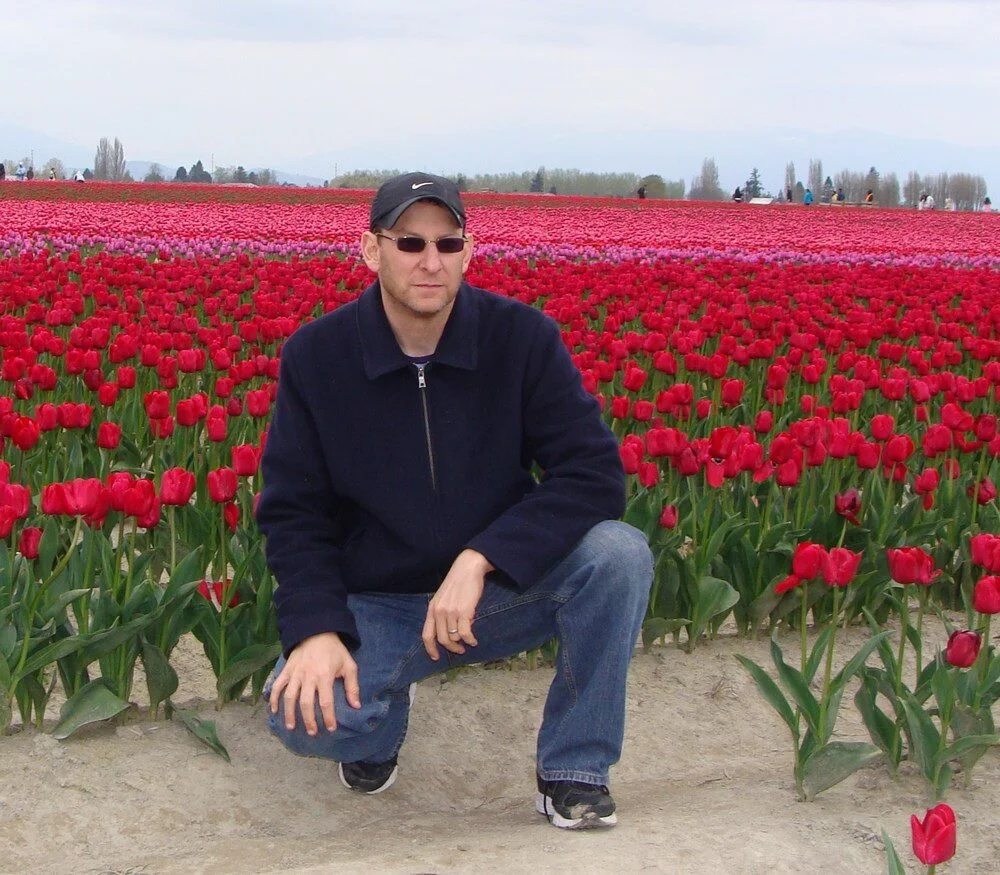2018 was the year I first started requesting review copies for books. My plan was to feature not only more interviews on the [neonpajamas] blog but more literature in general. Perhaps by chance, my very first ARC PDF was Sebastian Castillo’s 49 Venezuelan Novels. Released through Bottlecap Press, I remember reading it on my (now cracked) iPad and being so excited to a.) feel a sense of place within a literary community I wanted to join and b.) read a really good book for free.
Fast forward two years and some change and Sebastian Castillo has released his second book: Not I (word west press). With each line beginning with ‘I’ and each section focusing on a particular verb tense, Not I creates a whirlwind combination of language and imagery. It’s somehow the most organized autobiographical novel and also the most abstract.
While Not I is much different in style than Castillo’s first book (which is a collection of 49 one-page stories), the two are similar in the sense that they’re disciplined and tedious and technical experiments done really well. Within his books, restrictions are plenty and cohesion is key. I chatted with Castillo about his work, his relationship with brevity, his familiarity with Ben Affleck’s Armageddon DVD commentary, and much more.
from Not I
Let's begin with an icebreaker. if you could pick two dead writers to blurb your next book, who would they be and why?
I think it would be very funny to do this….To revive two human beings and then say to them: you may not visit your friends and family, whom you miss dearly. You may not see the places you once loved. You need to blurb my fucking book, loser, and then get back in your hole [laughs].
Congrats on releasing Not I! I first read it as a review copy and flew through the PDF in a sort of whirlwind scroll, soaking in the imagery and the syntax. And when my physical copy arrived, I read it much slower, focusing more on the sections than the individual lines, and really noticing the autobiographical presentation as a whole. The humor and the loneliness and the playfulness and the loss. Can you speak a bit on how this 181 page 'novel' took shape?
Thank you! I started with the constraint and then went from there. I really wanted the book to not exist merely as the execution of an exercise. My hope was that it would exceed those parameters through texture, echo, and contradiction.
Both of your books begin with ‘i’. While they're different in nearly every regard, was there overlap with 49 Venezuelan Novels and Not I? In a 2019 interview, you mentioned how you started Not I a few years prior. Wondering if those two interacted at all [and if your third book will begin with i].
Oh, you mean they both begin with the pronoun “I”? I had never thought of this! Nor did I realize it. That’s funny. I like to think of each project as separate, distinct—both books play with form and genre, because I suppose that is one of my principle interests in writing, but I think of them as doing different things. Each time I start a new project I want it to be different than something I’ve done before, though I think probably a lot of the same ideas inevitably reappear.
By the way, I just looked and my third book indeed begins with “I” hahahahaha
Oh man now I have to do this for the rest of my life, it seems.
from 49 Venezuelan Novels
You often deal in brevity, and during a microfiction workshop over at word west, your work was described as being perfectly compatible with Twitter. Can you talk a bit about working in a contained space / boxing yourself in / keeping it brief?
Yeah, I really love the concise mode in fiction. I think I probably first encountered it in Lydia Davis; it felt like it opened something for me. Speaking of Davis, here’s one of my favorite short stories she wrote, called “Willem Maris.” For some reason, it’s never been included in a collection. It was published in 2013 in the magazine Lemon Hound, on the internet. The story in total is as follows:
Willem Maris, the 19th-century Dutch painter whose two brothers were also painters, spent his whole life panting cows and calves—in meadow settings, with ditches and willows, sometimes in ponds.
He spent the first third of his career, it was said, learning to depict cows and calves in an anatomically correct manner. In the second third of his career, having mastered that, he became more adventurous with color and the effects of mist, etc. In the last third, he occasionally departed from his chosen subject matter to paint ducks and geese.
He is quoted as saying that he did not paint cows, rather light and shadow.
By the time he was in his sixties, however, “he often seemed tired of life.”
I tried writing about it once, but didn’t get too far. One thing I said: “It reveals something about living, art, reality, time, patience, indifference, fatalism, and resignation that I cannot yet put into more coherent words.”
That last line—the quotation “he often seemed tired of life”—feels like an ancient boulder flung in my general direction.
Despite the brevity of ‘microfiction,’ or whatever we want to call it, it appears to me fecund in nature. There’s so much one can do there. I’m trying to move away from this form for the time being—I’ve been writing little stories for six or seven years. I’ll probably return to it eventually.
I think this leads perfectly into discussing how your book was tweeted, line by line, in its entirety. Did you have any expectations prior to that kind of social experiment?
When I first met with David (head honcho of word west) I suggested this, because I thought it would be funny. David said he had had the same exact idea, so I knew we had to do it! I do think it’s great fun. You can read the whole book in a deranged form on the internet, and for free. That’s money in the bank.
You additionally had the book read, front to back, by yourself and a number of writers. And with your previous book, you provided a DVD Commentary. Have you always been drawn to the multimedia aspect of literature and performance/entertainment?
The DVD commentary was a bit of a joke thing. I used to love “DVD commentaries” back when they were ubiquitous. In the rare case that someone doesn’t know what this is: DVDs used to come with a commentary track—usually done by the director of the movie or an actor—which you could listen to over the main audio of the film.
Two of my favorites of this ‘genre’ are Ben Affleck talking over Armageddon and Noel Gallagher talking over Oasis videos. I recommend looking them up. The thing they have in common is that they both shit all over what they’re watching. I find this very amusing. I wanted to do a DVD commentary where I trashed my book, though I don’t know how successful I was.
Earlier this year, you shared some of your favorite books over at Peach Mag, and I ended up grabbing Scalapino's poetry from the library and was blown away. You describe her book as "the poetry collection that has done the most beneficent damage to my brain." I'd love it if you could elaborate a bit more on this connection with her work. And what other poets, if any, have viciously rattled your brain?
Oh man, I love Leslie Scalapino! Her work is so intensely itself, if that makes sense. There’s really no other poet like her. There are a lot of poets whose work I admire and who continue to give me tremendous pleasure. I’m a huge fan of John Ashbery. While I love all of his writing—I really don’t think there’s an Ashbery poem I don’t like—I would recommend his later work. He becomes more playful, a bit freer. Maybe because the pressure of the ‘major work’ was through with? His collection Wakefulness is one of my favorites. I also really love Breezeway. Other poets…well there are many, but to name a few: Alice Notley, Alejandra Pizarnik, Chelsey Minnis, Robert Greiner, Tan Lin, Jack Spicer, Tom Raworth, Russell Edson, Nicanor Parra…there are so many more, but I’ll stop there.
In the same feature, you said how you are "in the habit of forgetting everything I read almost instantly" and (about another book) "I honestly do not remember the novel itself, but its effect on me was indelible." Can you talk a bit about a strong memory vs. a lasting mood? Does this happen to you with film/television as well?
I think this happens with me in general, yes! With everything. I really do not have a good memory, though I can remember the surface of things well—maybe this gets close to what you mean by “lasting mood.”
Not I is still very new, but are you currently working on any new writing?
I just finished a short story collection. I am happy with it; it feels a bit like a collage of a variety of interests and tendencies. I would like to send it out somewhere, though I’m not sure where yet. Besides that, I’ve started work on a novel. I hope to finish it next year.
If you can, describe your workspace. What are some essentials while you create?
For whatever reason, I really need quiet to write. I can’t listen to music; I’ve never been a fan of writing in a coffee shop. Either my bedroom or a library are ideal. I can also never write while drinking alcohol. Need to stay sharp to write the best nonsense I can.
Right now on my desk is an ashtray and a Bible.
via Fanzine (where you can read 92 more)
For this ongoing author interview series, I'm asking for everyone to present a writing prompt. It can be as abstract or as concrete as you choose.
Oh, this is cool.
Write a book of 100 science fiction stories. Each story can be only one sentence long.
In closing, do you have any advice for early writers?
Read a lot, don’t worry about ‘developing a voice,’ and write silly things with a lot of care.
Any final thoughts / words of wisdom / shout-outs?
Thanks for asking me these question, Ben. I shout out all the people who have written a good book. That was great of you, I mean it.


